Poor drainage systems cause flooding in Lagos and create health risks to the population at large.

In the heart of Nigeria's most populous urban center, Lagos contends with persistent flooding. With over 24 million residents, this metropolis succumbs to heavy rain that turns streets and roads into streams.

As a nonprofit journalism organization, we depend on your support to fund more than 170 reporting projects every year on critical global and local issues. Donate any amount today to become a Pulitzer Center Champion and receive exclusive benefits!
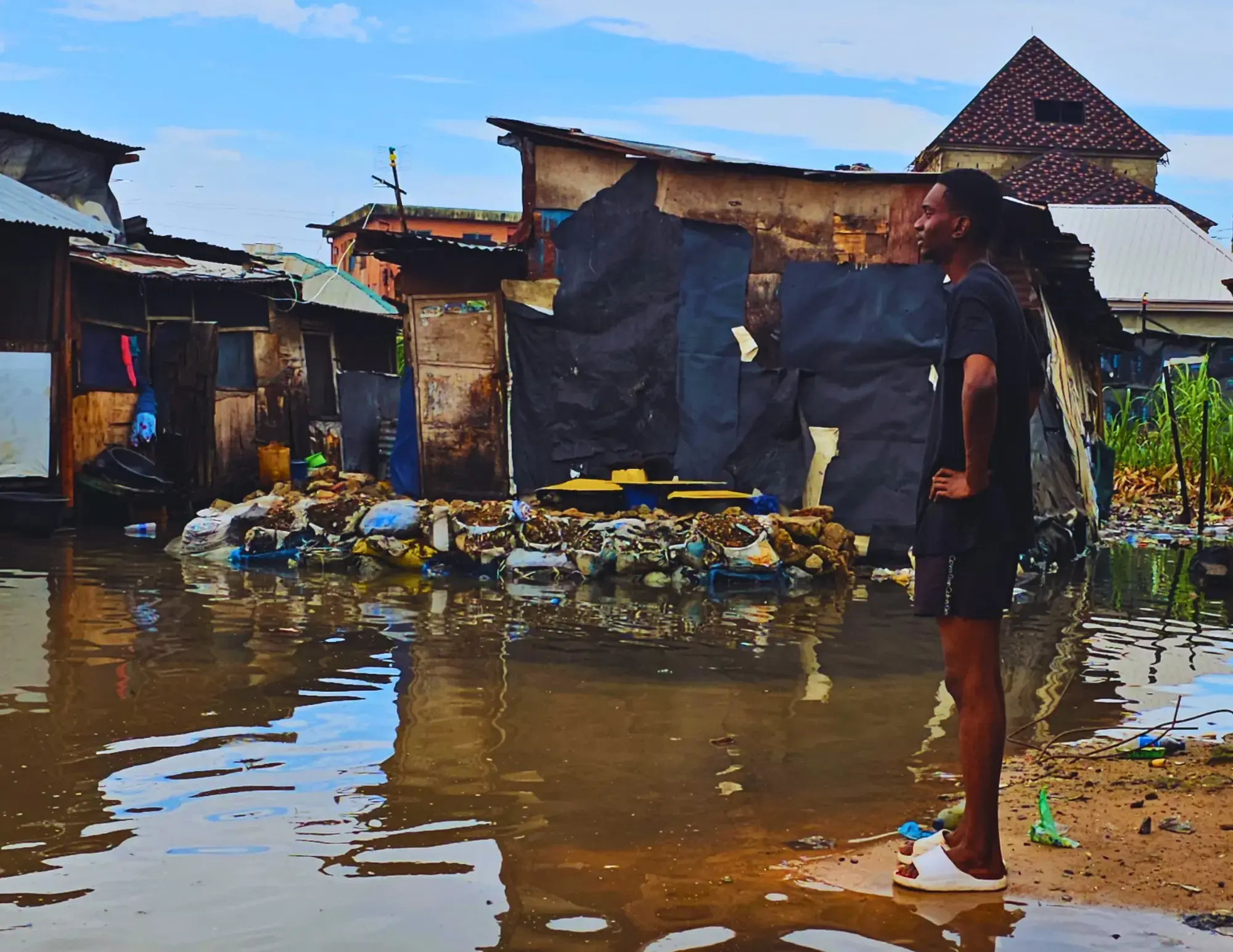
In neighborhoods like Maza Maza, in the Amuwo Odofin local government area of Lagos state, schoolchildren returning home often find themselves stranded and forced to cross flooded streets on foot.
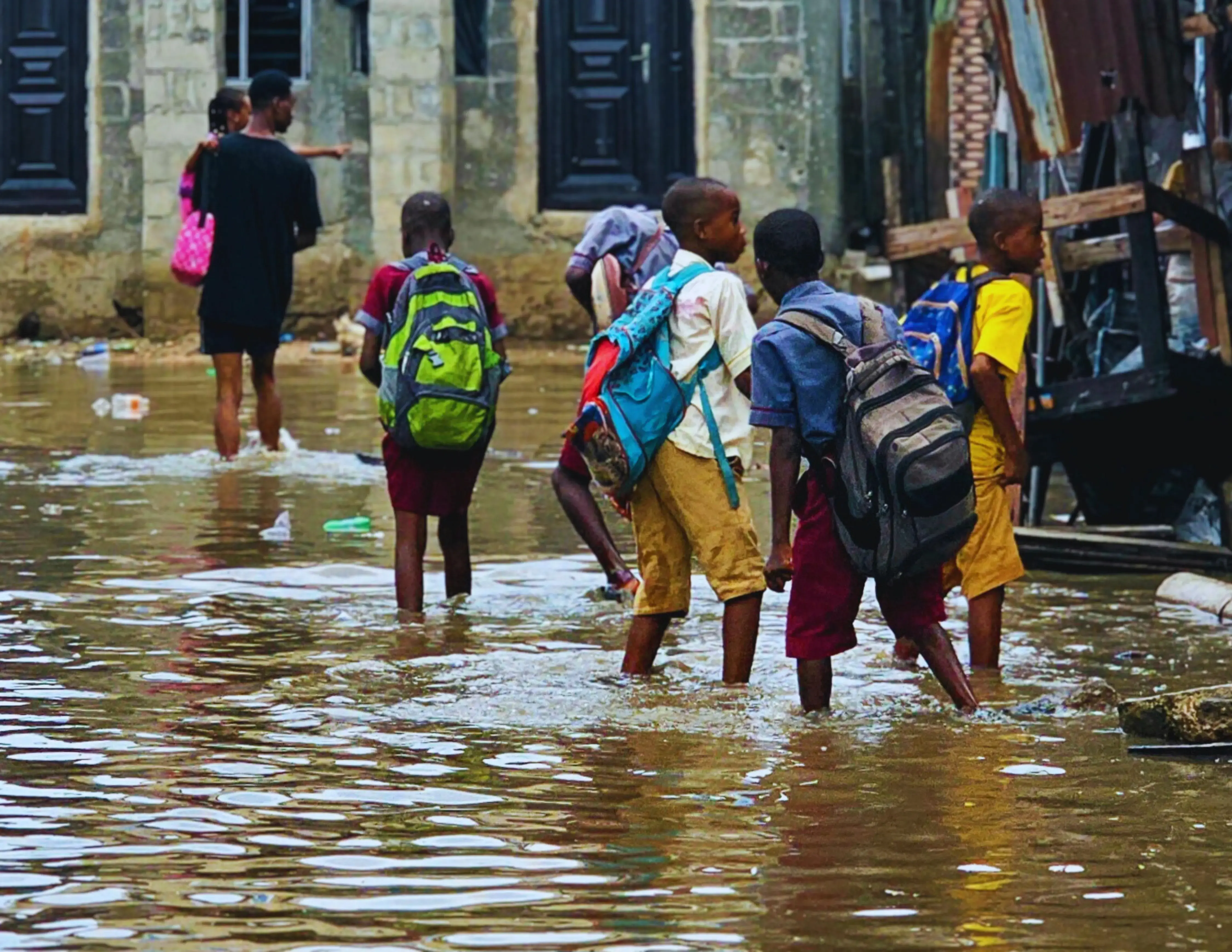
This persistent waterlogging is a consequence of inadequate drainage systems within the state.
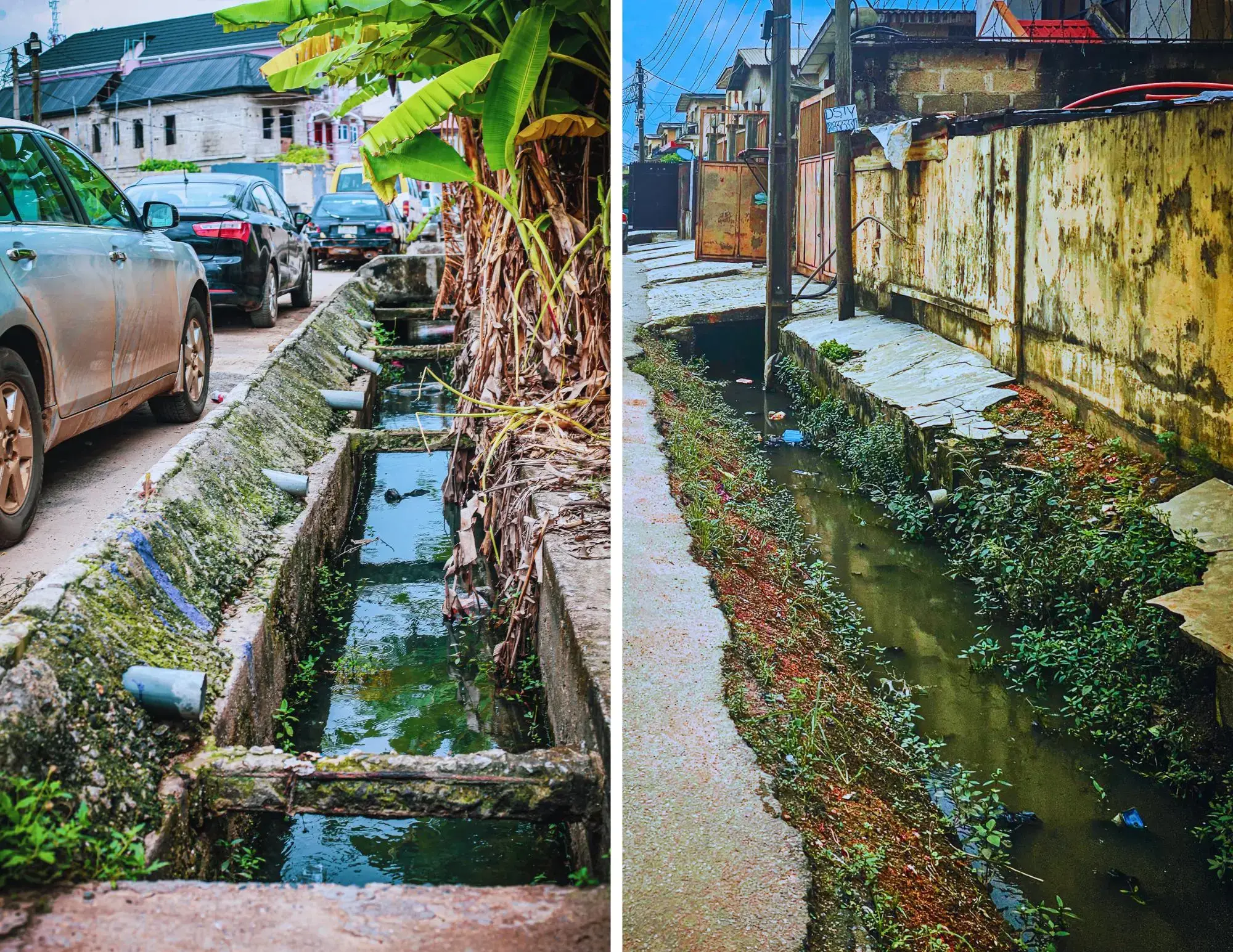
The drainage system design of Lagos is a disconnected network of shallow gutters that channel wastewater from homes into streets, with canals serving as the ultimate endpoints. While this system sufficed during the 20th century, the surge in population driven by industrial success has rendered the current infrastructure inadequate.
In today’s urban times, the city faces an urgent waste management issue echoed in its drainage system. Plastics, styrofoam packaging, nylons, and household waste all find their way into the drainage gutters, contributing to blockages. The neglected gutters become a hub for stagnant wastewater close to residential homes, cultivating a breeding ground for disease-carrying insects, notably contributing to the spread of malaria.

Additionally, rainwater gathers on the roads, facilitating the deterioration of infrastructure and giving rise to potholes—a visible imprint of the city's evolving tale.
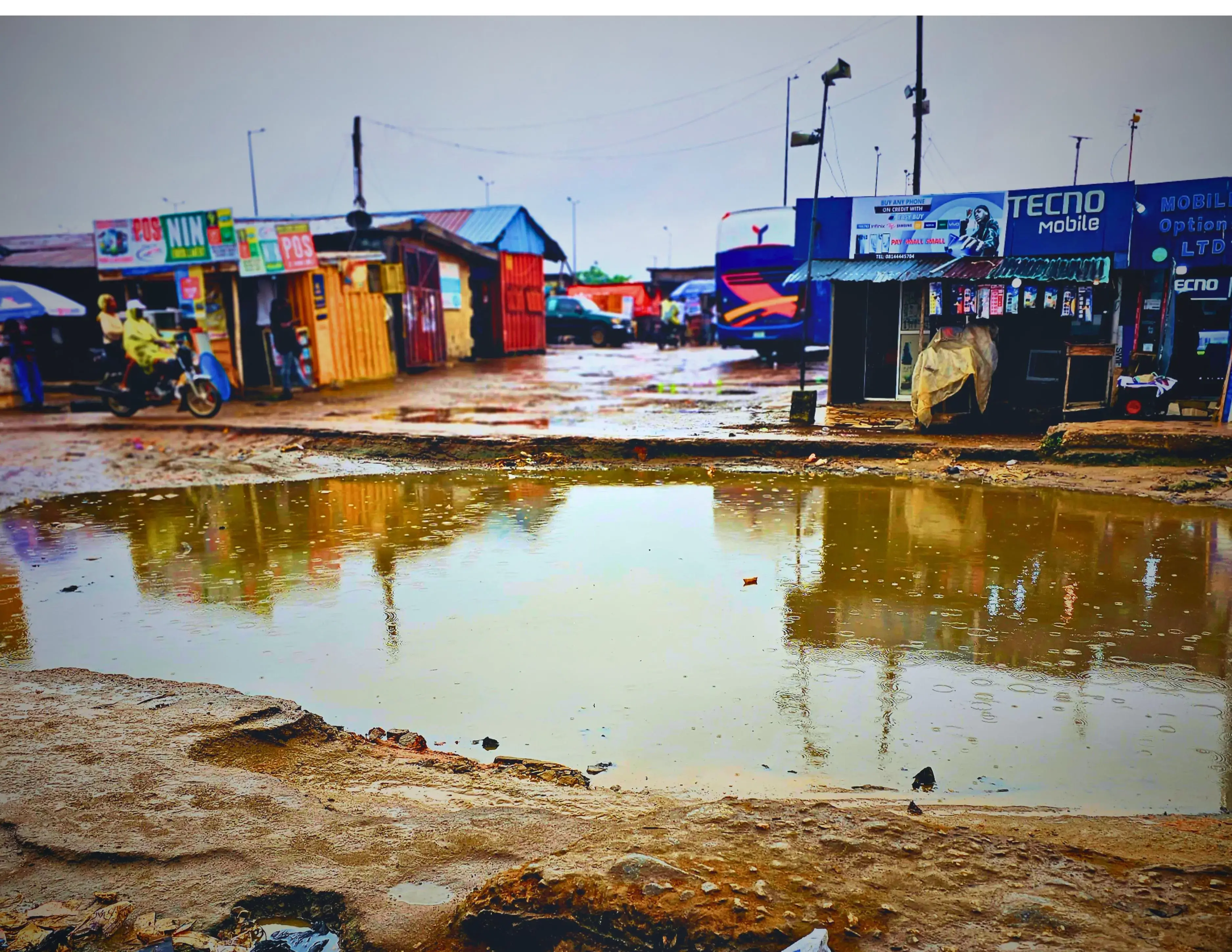
As the rainy season persists, lasting from late March to early November, the cycle of waste management and drainage system issues continues because of mismanagement and lack of oversight. In numerous residential parts of Lagos, including the state capital, Ikeja, waste disposal companies under contract do not make regular visits to the neighborhoods.
With the absence of law enforcement to regulate waste disposal, residents find themselves at the mercy of their neighbors. Often, vacant backyard lands become dumping sites for household waste.
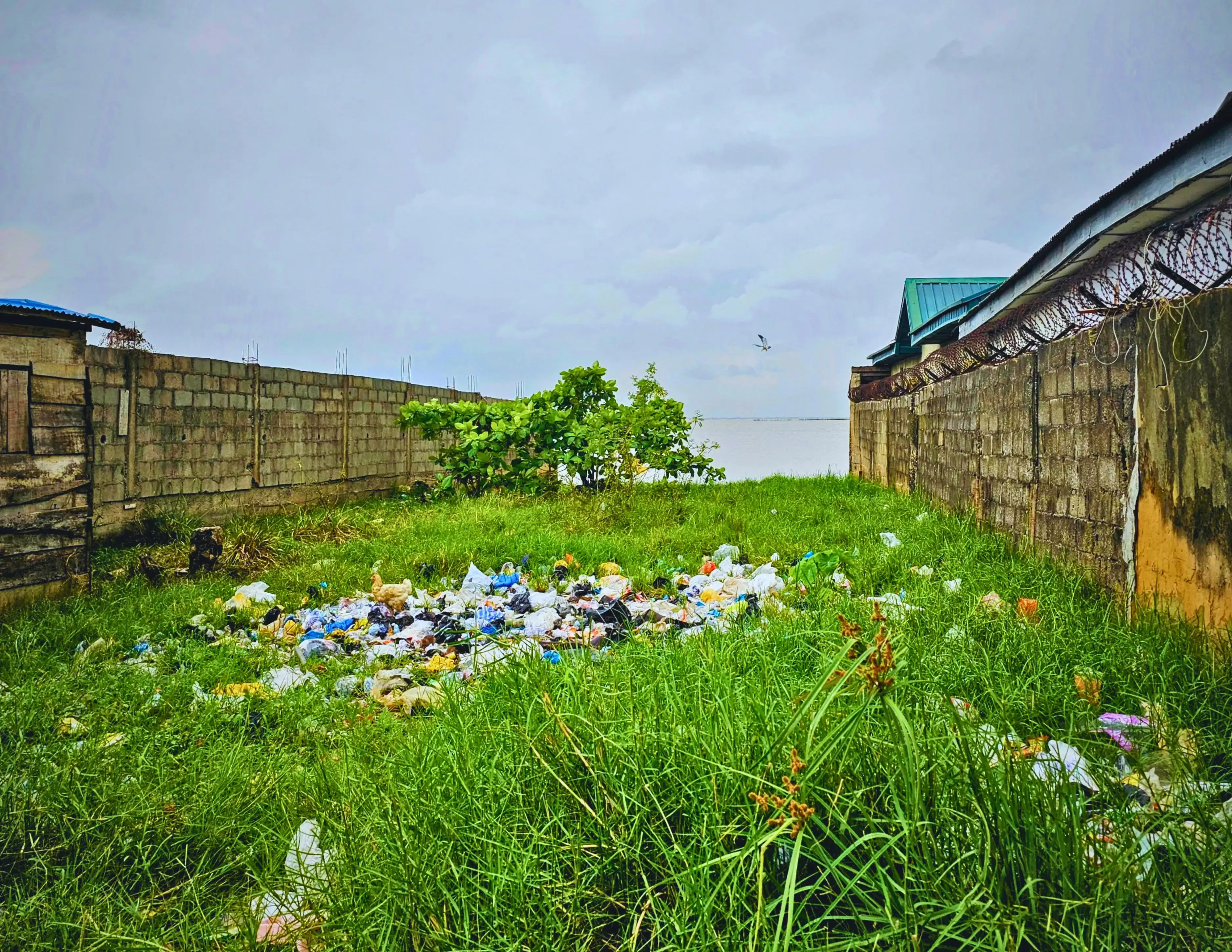
Moreover, even when drainage cleaning companies are called upon, they falter in their duty, leaving piles of dirt and sand on roadsides. During a tour, Williams Praise, a resident of Ikeja, pointed out unattended empty gutters near his home and around his area. He stated that these remnants are soon washed back into the gutters by rain, perpetuating the same cycle.
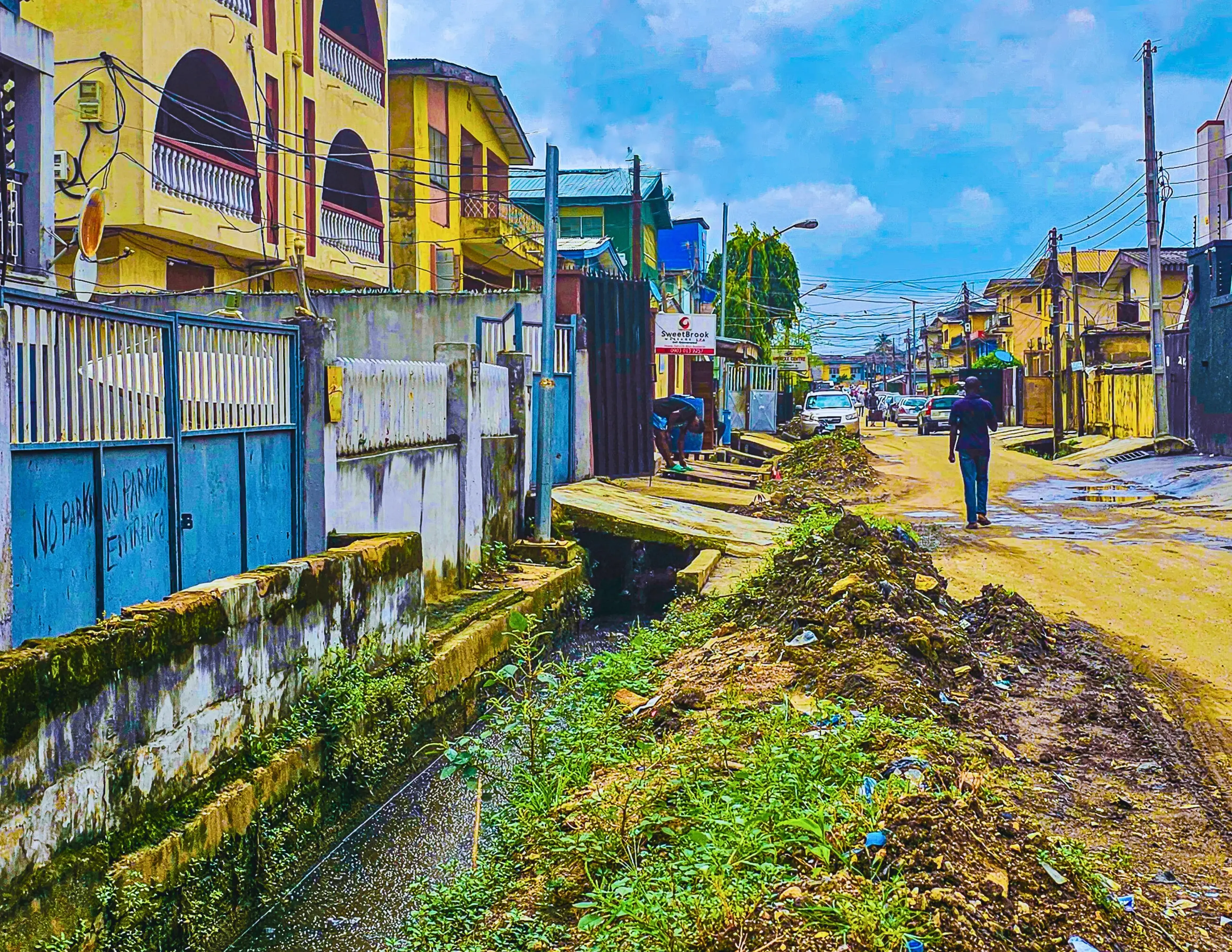
Beneath the surface, a concealed root of Lagos' issues lies in the absence of urban and regional planning. This leads to the canals becoming targets for refuse disposal, transforming into a hub for rodents, mosquitoes, and breeding grounds for disease. The University of Lagos canal system servicing Akoka and Onike is a case study for this occurrence.
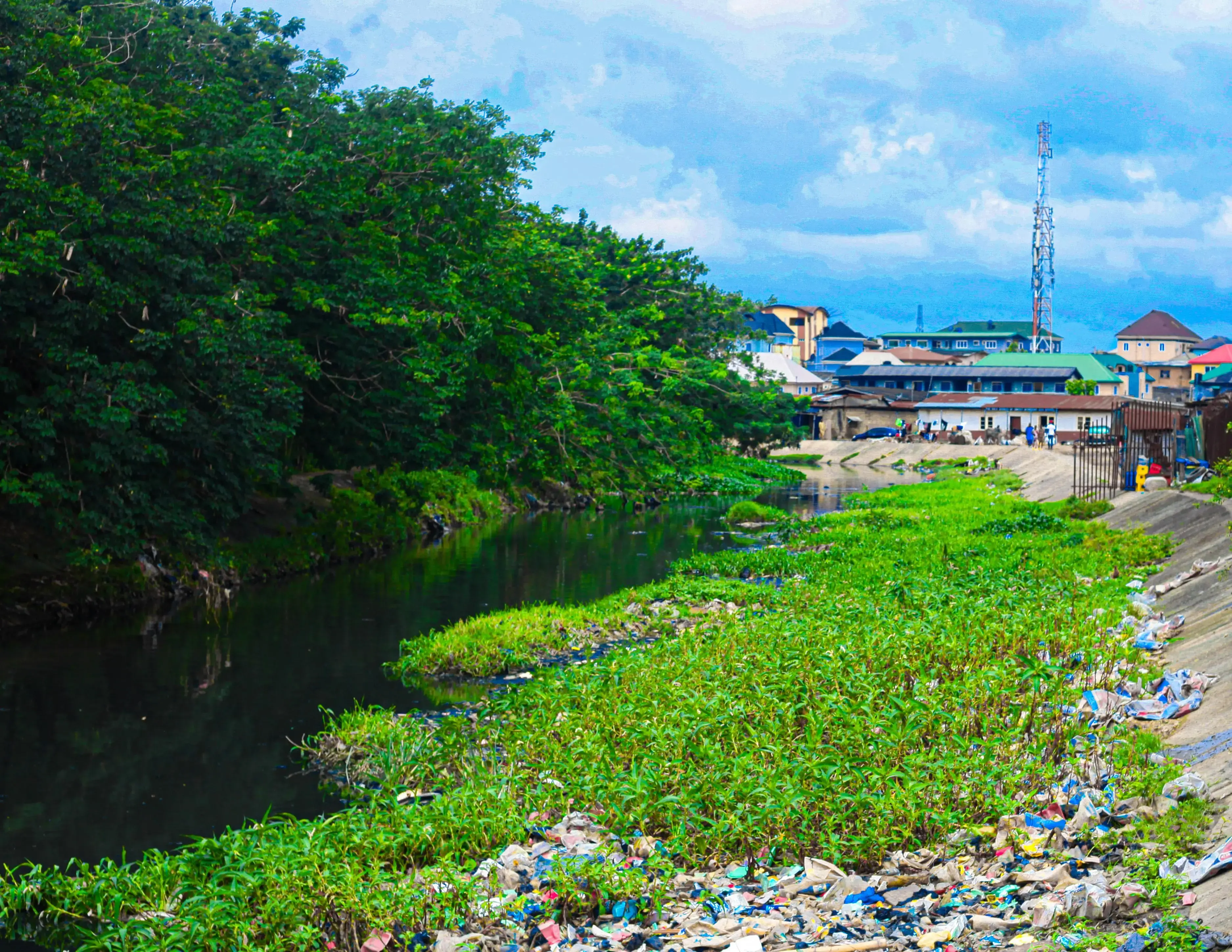
Situated in between the localities of Oworoshoki, Oshodi, Mile-2, and Iwaya, some houses face a concerning issue: the absence of proper drainage gutters. Ayodele Olowokporuku, a researcher and consultant for the World Bank specializing in flood and risk assessment, makes a strong point.
"Many residents do not comply with building regulations and standards. Some buildings are developed without consideration for drainage lines at all," he said.
This issue leads to the haphazard construction of residential structures near canal passageways. Landlords, in their failure to adhere to state regulations, either opt for the creation of disjointed shallow drains or blatantly disregard the need for proper drainage altogether, Olowokporuku explains.
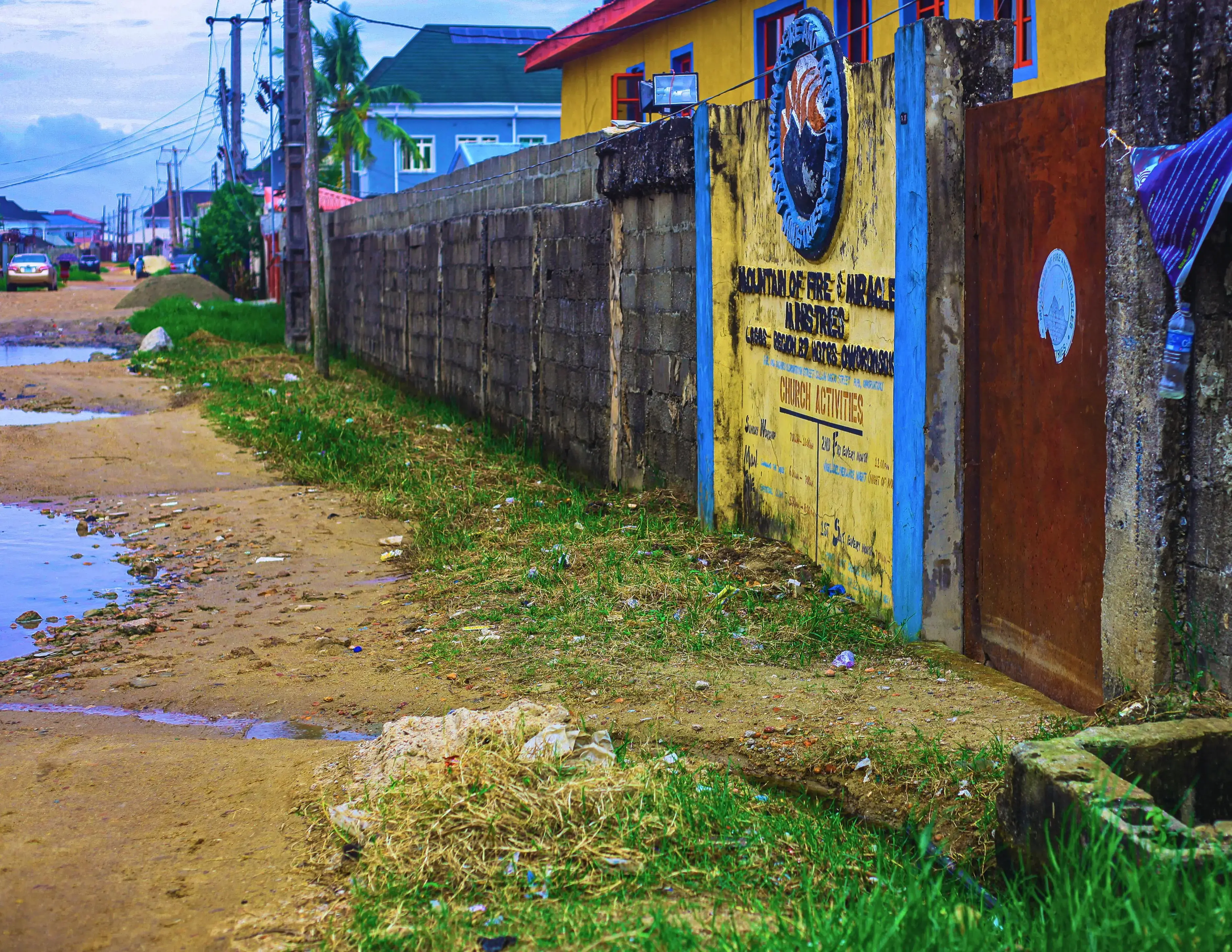
While Lagos is contending with a multifaceted health risk linked to drainage problems, Olowokporuku underscores the importance of fortified urban planning, enhanced infrastructure, and enforced drainage regulations to establish sustainable solutions.









